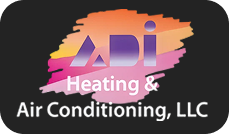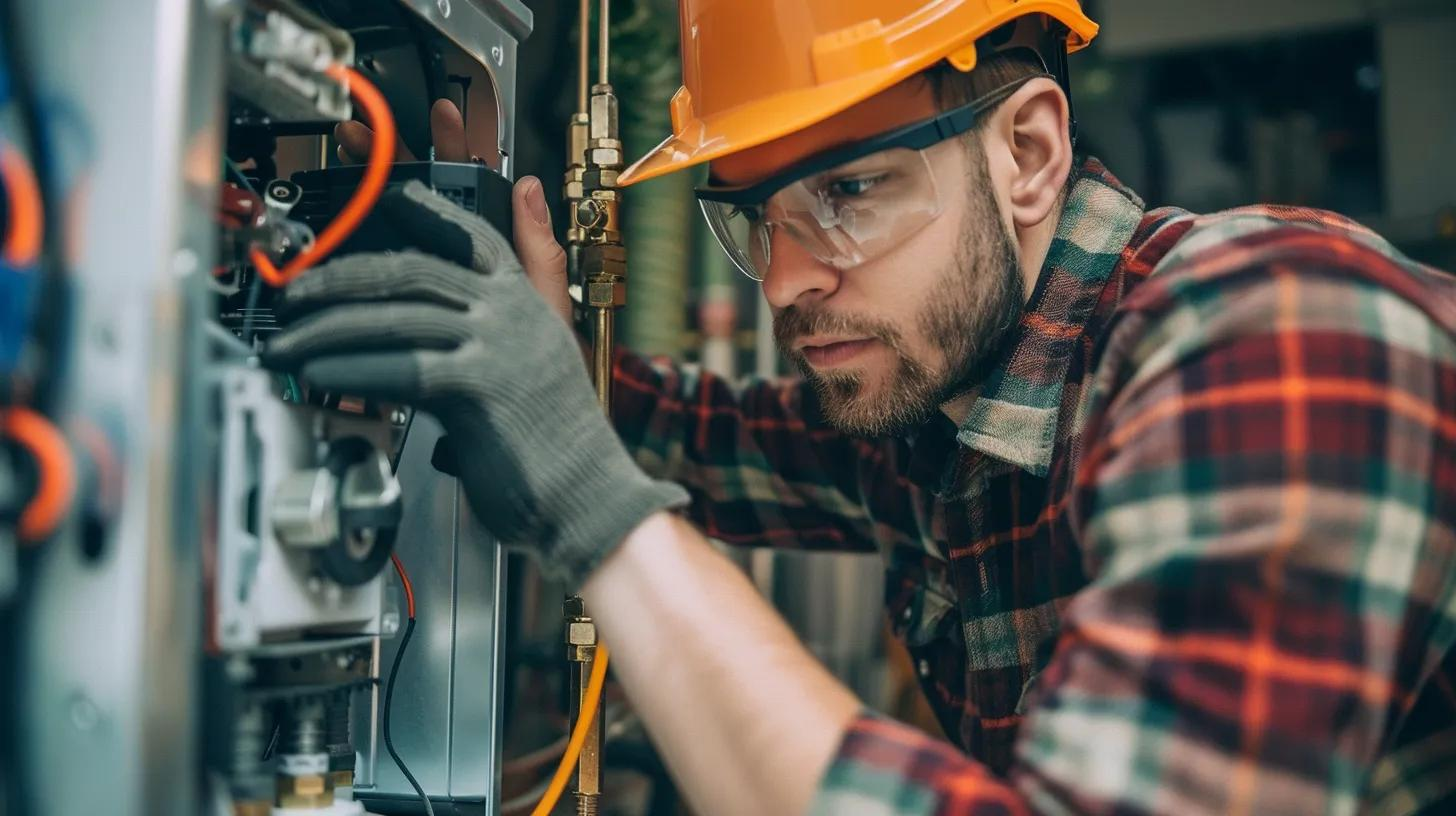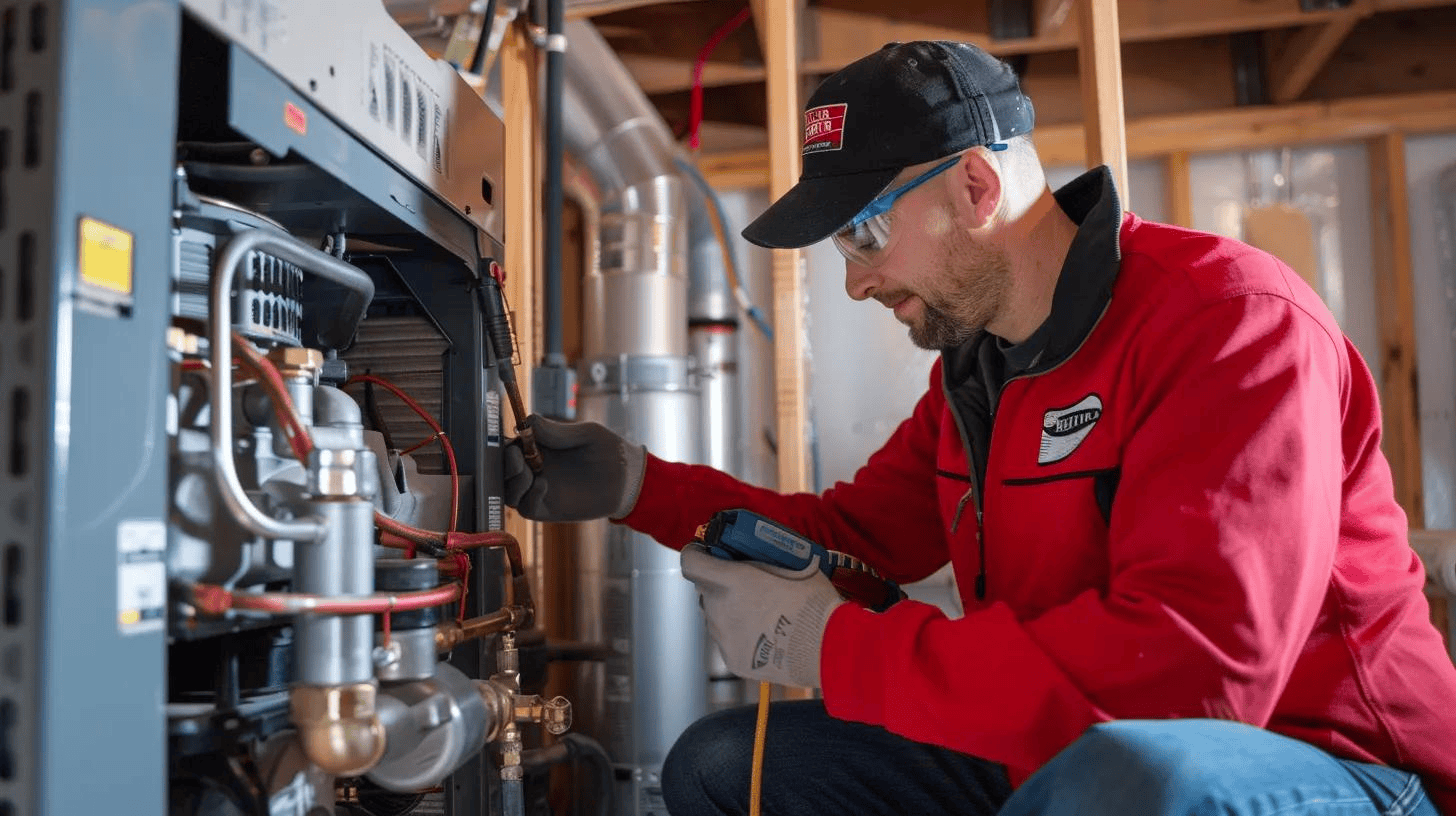IAQ HEPA Air Cleaners in North Potomac, MD
Whole-House HEPA Air Cleaners in North Potomac, MD
Significantly enhance your North Potomac, MD home's air quality with whole-house HEPA air cleaners. These systems provide hospital-grade filtration, capturing 99.97% of microscopic pollutants like pollen, dander, and mold spores. Experience relief from allergies, less dust, and consistently fresher indoor air. Professional installation is vital for seamless HVAC integration, ensuring peak performance and protecting your system. Regular filter maintenance guarantees continuous clean, healthy air.

Whole-House HEPA Air Cleaners in North Potomac, MD
The air inside your North Potomac home can be significantly more polluted than the air outside. Common household contaminants like dust, pet dander, pollen, and mold spores constantly circulate through your HVAC system, triggering allergies, aggravating asthma, and diminishing your overall comfort. While standard HVAC filters capture larger particles, they are no match for the microscopic threats that impact your family's health. A whole-house High-Efficiency Particulate Air (HEPA) cleaner offers a definitive solution, providing hospital-grade air filtration for every room in your home.
The Gold Standard of Air Filtration
What makes HEPA filtration the superior choice for indoor air quality? The distinction lies in its scientifically verified performance. A filter must meet a strict standard set by the U.S. Department of Energy to be classified as true HEPA. This standard requires the filter to capture at least 99.97% of airborne particles down to 0.3 microns in size.
To put that into perspective, a human hair is about 50-70 microns wide. The particles that trigger most allergic reactions—like pollen, dust mite debris, and pet dander—are much smaller and can easily pass through conventional filters. HEPA filters utilize a dense mat of fine fibers that create a complex maze, trapping these microscopic particles through a combination of interception, impaction, and diffusion. This mechanical filtration process ensures that contaminants are physically removed from your air supply, not just neutralized or altered.
The pollutants effectively captured by a whole-house HEPA system include:
- Pollen and Ragweed: Reducing the impact of seasonal allergies in the North Potomac area.
- Dust Mites and Their Debris: A primary trigger for year-round allergies and asthma.
- Pet Dander and Hair: Providing significant relief for family members with pet allergies.
- Mold and Mildew Spores: Helping to prevent the spread of mold and its associated health risks.
- Bacteria and Some Viruses: Reducing the circulation of airborne pathogens.
- Fine Particulate Matter (PM2.5): Capturing smoke, soot, and other fine particles that can penetrate deep into the lungs.
Health and Comfort Benefits for Your Household
Integrating a whole-house HEPA air cleaner into your home's HVAC system provides comprehensive benefits that extend far beyond what portable, single-room units can offer. By purifying the air at its source, you create a consistently healthier environment throughout your entire living space.
For individuals suffering from respiratory conditions, the improvement can be life-changing. By continuously removing airborne triggers, a HEPA system can significantly reduce the frequency and severity of allergy and asthma symptoms. This means less sneezing, coughing, and congestion, and more restful, uninterrupted sleep.
Beyond targeted health relief, homeowners often notice a dramatic reduction in household dust. With fewer particles circulating in the air, surfaces stay cleaner for longer, reducing the time and effort spent on dusting. The air itself feels fresher and cleaner, free from the stale or musty odors that can develop from trapped pollutants. This creates a more pleasant and inviting atmosphere for your family and guests.
Professional Integration with Your HVAC System
A whole-house HEPA cleaner is not a standalone appliance; it is a sophisticated component designed to work in tandem with your existing heating and cooling system. Proper installation is not a do-it-yourself project—it is a critical process that requires the expertise of a trained HVAC professional to protect your equipment and ensure optimal performance.
Improper installation can create a significant drop in air pressure, forcing your furnace or air handler’s blower motor to work harder than it was designed to. This strain can lead to increased energy consumption, reduced system efficiency, and premature failure of expensive HVAC components.
To prevent this, professional installation involves a careful assessment of your existing system’s capacity. In many cases, a bypass installation is the ideal solution. In this configuration, a portion of the return air is diverted through the HEPA filter and then reintroduced into the airflow. This method effectively cleans the air over multiple cycles without impeding the primary airflow of your HVAC system. A skilled technician will precisely size and configure the bypass ductwork to achieve maximum filtration with minimal impact on your system's static pressure.
The Importance of Consistent Maintenance
Like any high-performance filter, a HEPA filter requires regular maintenance to remain effective. Over time, the filter becomes loaded with the particles it has captured. A clogged filter not only loses its ability to clean the air but can also obstruct airflow, leading to the same problems as an improper installation—higher energy bills and added strain on your HVAC equipment.
For most homes in the North Potomac area, the main HEPA filter will need to be replaced every 6 to 12 months. Homes with pets, smokers, or high levels of airborne pollutants may require more frequent changes. Most whole-house systems also include a less expensive pre-filter, which is designed to capture larger particles like lint and hair. This pre-filter protects the main HEPA filter and should be checked and changed more often, typically every 1 to 3 months. Adhering to a consistent filter replacement schedule is the single most important step you can take to protect your investment and ensure your system continues to provide clean, healthy air for years to come.






